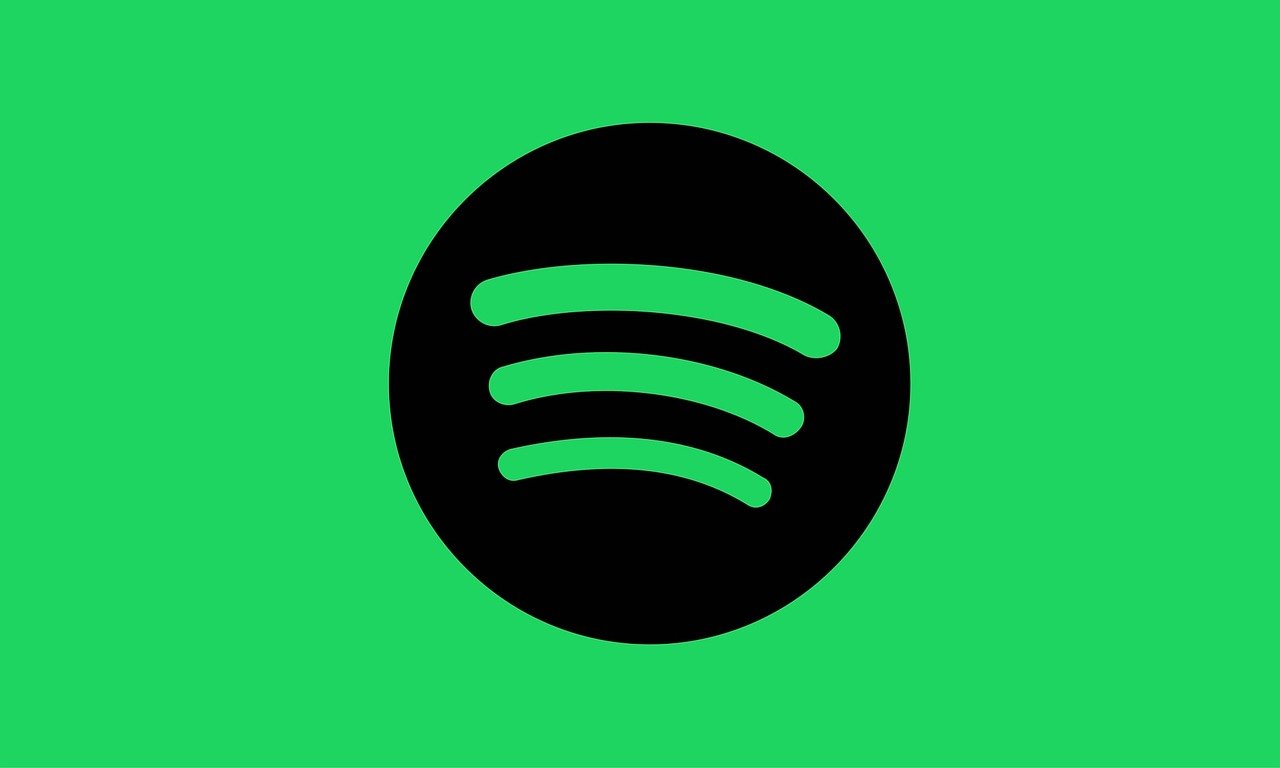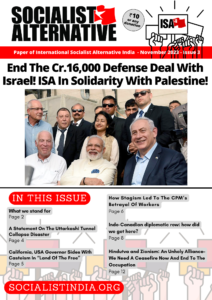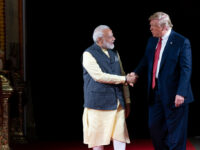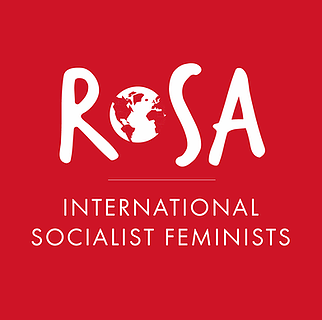Spotify Un-Wrapped: How The Music Industry Exploits Artists

The controversy over COVID denialist Joe Rogan’s $100 million deal with Spotify has led to widespread criticism and major artists such as Joni Mitchell and Neil Young pulling their catalogs from the platform. But Spotify’s issues in the music industry go much further than this scandal.
The streaming model when it was first unveiled was hailed as a silver bullet to the failing recording industry, which was on the back foot in its fight against piracy. This simple solution was elegant and appealing both to consumers and musicians: For consumers, this meant having access to an enormous catalogue of music that they could never afford to buy, without having to store it on their computers. For musicians, it meant having access to a captive market and a more level playing field where they could deliver their products to fans directly without having to deal with complicated and exploitative distribution deals.
However, while the convenience for consumers remains a selling point for the model, musicians have by and large seen their income from recordings shrink to practically zero. This is due to three main issues. The outrageously low per-stream rate, the behind the scenes and unfair contracts, and the race to the bottom centered around the myth of exposure. Although Spotify is one of the worst offenders, these same issues come with many other streaming services as well.
Spotify Doesn’t Pay
Spotify CEO Daniel Ek claimed his company was founded to create “a more fair and equal music industry than it’s ever been in the past.”(1) However under the current model, rather than the $.99 per download of iTunes’ heyday or the $10 or more per album during the time of physical media, artists get paid on average just one third of one cent per stream. While streaming makes up over 50% of music related revenue in the entire world, only 28% of musicians make any money at all, with the median income being $100 per year in 2018. In order to make the US federal minimum wage of $7.25 an hour, 40 hours per week, a band would have to have over 76,000 streams per band member per week. In order to make the median American rent of $1,078 per month, you would need 283,684 streams per month per band member.
Spotify’s business model is designed to keep smaller artists out of the money. Backroom deals with major record companies allow the most famous and highest earning artists to push their music to listeners while independent artists lie in the shadows. The “pro rata” model also means that the rates per stream are not equal, with the biggest artists getting a better deal per stream. In addition, they have pushed a so-called “discovery mode”, which pressures musicians to accept an even lower rate in exchange for higher visibility.(2,3)
The Myth Of “Exposure”
As many artists know, the oldest trick in the book is the myth of “exposure”. Rather than pay artists what they are worth, Spotify is trying to leverage imaginary future value for their music in order to take even more of the value that they are generating right now. The issue with exposure is that it is over-promised and under-provided. Legitimate gigs provide “exposure” not as a substitute for pay, but as a point of mutual interest: putting more people in seats (or headphones in this case) means better money for both the venue and the performer. On the other hand, business deals that promise exposure instead of cash are almost always trying to exploit naive and desperate artists while actually providing them nothing.
While it can’t be denied that the top artists do work very hard, committing an unreasonable portion of their time to fulfilling their celebrity roles, the idea that they “work their way to the top” is simply misleading. The ruling class does not permit refugees from poverty to enter the gates of wealth as a reward for hard work. Rather, such celebrities are selected for the purposes of capitalism, grooming them from a young age (for example, Drake, Miley Cyrus, Britney Spears and Michael Jackson all began their careers as child stars), and often selecting them from the ranks of the super-rich.
The way that these celebrities by their corporate sponsors are able to make money is through negotiating special deals in the back rooms of power. Major earners such as Joe Rogan, Drake, Beyonce and co. don’t have to play by the rules that the rest of us do. Rather they can leverage their existing powers to take preferential deals with better pay, guaranteed placement, advances, and so on.
No Turning Back The Clock
Some vocal groups have advocated for a return to the old system, eliminating streaming and relying instead on private sales. For the most part, they are counting on fans to make an individual decision at a massive scale to divest from streaming and invest in buying music. The problem is simply that this system was already failing when streaming came about. Piracy made almost any piece of music that you wanted to find available to download illegally and discreetly. In addition, disposable income in our capitalist system has been falling for decades; there is no chance that people will willingly decide to pay more money for the same products after already experiencing streaming.
Another issue with this is as traditional, art music and niche genres depart from the platform, the scope of media becomes even narrower and more dominated by the capitalist culture. Simply put, our cultural heritage and diversity are dying. While working exclusively through sale of media rather than streaming objectively leads to better financial results for musicians, it also drastically shrinks their audience and will have an impact on the potential next generation of culture bearers as they fail to see and hear diversity in the “music scene” as told by Spotify.
Looking Towards The Future
The issue is not the technology, it is capitalism. Music consumers understand just as well as musicians that music production is labor and that in order to maintain the supply of music, artists need to be paid. Imagining the future of music distribution requires imagining power being in the hands of the people who produce the music, not capitalist middlemen. A socialist economy could do such a thing by taking hold of the very capable distribution networks of that streaming companies provide and repurposing them in such a way that ensures fair compensation. We need community-driven approaches to culture work, not a capitalist race to the bottom.
Trying to predict the future, decide which struggle is going to be successful and what music would look like after the revolution is a futile task. Our job is not to look past the struggle but to step into it and bring it one step closer to victory. However, we can see what the major issues are in the music community and discuss what we can do to solve them in a democratically planned economy. A socialist reorganization of society would mean putting communities in control of our culture rather than allowing giant conglomerates to force feed us mass produced media. It would also mean recognition of cultural work as being “real work”, and doing away with the unfair restrictions on unions as well as guaranteeing the right to fair pay as well as a workplace free of harassment and discrimination.
Musicians Fighting Back
While the major artists who have divested from Spotify have taken up a large spotlight, there is a significant effort among working class musicians who are ready to fight for better pay and working conditions across the board. The COVID lockdowns forced tens of thousands out of work who were making the vast majority of their income from live performances. While on one hand, state governments had made it very difficult for freelancers to apply for unemployment compensation, on the other, there was little to no revenue coming in from streaming, despite a huge increase in the consumption of streaming during the lockdowns.
The American Federation of Musicians (AFM), despite having thousands of members in the country, did not mount a significant fight back for working musicians. Due to their inability to arrange collective bargaining contracts with music venues through the National Labor Relations Board (4), their role in the lives of working musicians has been simple legal and logistical support: negotiating contracts in very specific circumstances such as film and orchestra work, and providing services such as a dues-financed retirement pension, rehearsal spaces and instrument insurance. The NLRB does not allow unions to negotiate between musicians and music venues. While these services are helpful, they simply do not address the major concerns of working musicians such as ensuring a safe and professional atmosphere, stopping illegal and unethical practices (such as wage theft and hiring discrimination), and of course low wages. 2016 saw an effort by the AFM to organize musicians at an industry-wide level and try to change the situation. However, the effort was half-hearted, underfunded and quickly aborted after the presidential election. Promises such as hiring a professional organizer and researcher to evaluate conditions and respond to them were suddenly broken the morning of November 9th and no further progress has been made.
We face the challenge of having to unite an industry which is massively chaotic and decentralized, and the handicap of isolation from and competition with other artists as our profession lacks the massive organization of other industries. This is not only due to the nature of artistic work itself but as mentioned, because of the legal structures in place. Freelance work means not having a regular workplace, consistent co-workers, or legal protections provided by traditional unions. Communication with other workers takes place off the job and informally. And as mentioned, the existing unions are simply not up to the task.
Heroically, upstart groups like the Union of Musicians and Allied Workers have taken up the yoke. The Justice at Spotify Campaign has gathered support from all around the world, including from ISA. Going beyond simple demands such as the immensely popular “penny per stream”, organizing musicians also are working to imagine a more equitable system in which art and culture can be provided to all while also ensuring the livelihood of art and culture workers. Through militant organization and nonstop struggle, working artists can and will turn small victories into larger ones which snowball into a situation where it is the artists and not the big recording companies that have control over the industry.
What Will It Take To Win?
In order to win, artists around the country have to make a concerted and coordinated effort to organize and become active in the struggle. We will have to overcome the decentralization and isolation of freelance work and the attempts of the industry to divide and conquer. Another vital issue will be to link up with other organizations of ancillary workers. For example, tech workers in the streaming companies, waiters and bartenders at music venues, sound technicians and recording engineers, etc. Working with all these people, we can utilize our leverage the most effectively.
Right now, fragmentation and division are rampant as many see it as a virtue to separate every issue into compartmentalized and atomized struggles in which freelance activists weigh their relative value and decide which “cause” to support. However Black Lives Matter, the massive union drives, the fight for minimum wage increases and universal healthcare among other struggles have shown how important it is to stand together to win. Our successful campaign against the billionaire and right wing backed recall of Kshama Sawant demonstrated how a working class program can win victories for everyone. Only by uniting under the banner of international working class struggle can we as culture workers win our demands. We can win a better world for all people!





